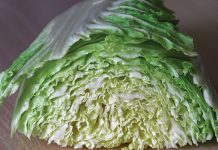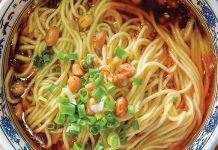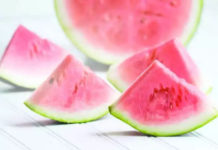Most Westerners might say it’s not much to write home about, but the English merchant, James Flint, was someone who, in 1770, did just that, when he penned a letter to Mr. Benjamin Franklin, about a foodstuff he had eaten while in the great Orient; “Towfu”.
The earliest known record of the making of doufu dates back 2,000 years to the Han Dynasty, where legend has it was invented by Prince Liu An. These days, doufu is as staple as rice throughout Asian cuisine, although one that is, for the most part, shunned by Western tastebuds. Now it’s getting a good hard look at through the microscope.
Could there be a genetic factor that sub-consciously detracts Westerners from consuming soy? A slew of recent scientific research has made it abundantly clear that we must question the effects of the bean and be fully informed of what it can do once added to the diet, especially for men.
Containing up to 10.7 percent protein and as little as 2 percent fat in doufu, soybeans make a desirable addition to the diet in many forms. They also contain cancer, osteoporosis and heart disease fighting estrogen-like molecules called isoflavones. However, while in small doses, men and women can benefit from this, when consumed in large amounts, it is thought to up one’s estrogen levels to almost 8 times higher than those of a healthy woman, putting men at risk of a whole host of “feminising” health problems.
Featured in Men’s Health magazine, the breasts of retired American soldier, James Price, became painful and swollen after 3 months of consuming soy milk on a daily basis. “It looked as if gum balls were implanted underneath each nipple. The slightest touch triggered throbs”.
His beard growth slowed, he lost hair from his arms, chest, and legs, while he also reported losing sexual interest in women, as well as becoming uncharacteristically emotional. After his doctor finally figured soy was the culprit for his feminine ways, Price stopped immediately and after several months, blood tests revealed his estrogen levels dropped and he went back to normal.
One Harvard study found a strong link between men’s consumption of soy foods and decreased sperm counts, while another study of 99 men who consumed 15 different soy-based foods found that those who took the highest amount of soy averaged 32 percent in sperm count reduction. In addition, the plant-based, estrogen-like substances found in soy may affect thyroid function, as well as seriously sending hormones well out of balanc
Women may also experience adverse effects with the consumption of too much soy. Dr. Larrian Gillespie, author of “The Goddess Diet”, suggests that, while woman believe it is their hormones throwing them off kilter, it is in fact hyperthyroidism, and that once they stop eating soy, they report feeling better again.
So while in small to moderate doses, doufu is considered safe, it seems large amounts could present problems for female fertility, reproduction and the feminising of men. The safest amount to consume lies between 35 and 55 mg a day, while up to three servings of natural soy foods a day is also ok.
Of course, all of this is a result of Western, science-based research which greatly differs from the Chinese attitude towards the food. According to the Chinese Medicine Encyclopedia, doufu is considered a cooling agent, good for the spleen, qi and yang, as well as a detoxifier of the body.
In addition to aiding the weak and overweight, for mothers with low breast-milk supply and phlegmy people, doufu is also considered suitable. For elderly people, it is recommended that it be eaten together with liquor, since doufu contains cysteine, which can speed up the detoxification of alcohol in the body and lessen harm done to the liver.
The actual word doufu (豆腐) is the description of the curdled milk that is squeezed from a plant. In China, it is safe to say that this word is referring to the soy variety, however, many others such as Almond, Chickpea, Egg, Mango, Coconut, Peanut and Sesame doufu dishes are also found around the world.
















